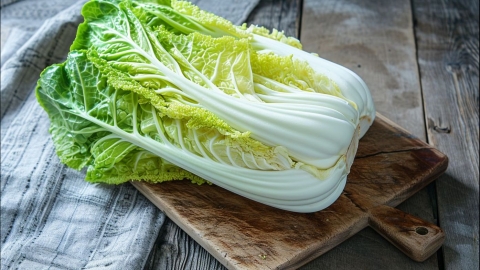Why do you gain weight after eating boiled vegetables for a month?
Generally speaking, eating boiled vegetables for a month may lead to weight gain. The main reasons include improper food pairing, incorrect cooking methods, excessive total calorie intake, nutritional imbalance, and reduced metabolism. If abnormal weight changes occur, adjusting the dietary structure promptly can help improve the situation. Specific explanations are as follows:

1. Improper Food Pairing
If starchy ingredients such as potatoes, yam, or lotus root are frequently included in boiled dishes without reducing staple food intake, excess starch can be converted into fat and stored in the body. Although these ingredients are categorized as vegetables, their caloric content is close to that of some staple foods, and overconsumption easily leads to a caloric surplus.
2. Incorrect Cooking Methods
Some people add large amounts of oil for flavoring when preparing boiled vegetables, or serve them with high-fat, high-sodium sauces. Since fats are extremely calorie-dense, even if the ingredients themselves are low in calories, excessive oil consumption can cause overall calorie intake to exceed limits. Over time, this may result in weight gain.
3. Excessive Total Calorie Intake
If boiled vegetables—despite being low in calories—are consumed without portion control, or if snacks and sugary drinks are consumed additionally, daily total calorie intake may surpass energy expenditure. The body stores excess calories as fat, leading to weight gain.
4. Nutritional Imbalance
Eating only boiled vegetables over a long period often results in insufficient protein intake. Protein enhances satiety and helps maintain muscle mass. Inadequate protein shortens the duration of fullness, increasing the likelihood of overeating. Additionally, loss of muscle mass reduces basal metabolic rate, decreasing overall calorie expenditure.
5. Reduced Metabolism
Prolonged very-low-calorie intake causes the body to enter "energy-saving mode," actively lowering basal metabolic rate to sustain essential functions. Once metabolism slows down, even small amounts of calorie intake become difficult to burn off, promoting fat accumulation and rebound weight gain.
In daily diets, balanced nutrition should be emphasized. Boiled vegetable meals should include protein sources such as lean meat, eggs, and soy products, while limiting starchy vegetables and reducing staple food portions. Avoid high-oil condiments during cooking; instead, use vinegar or small amounts of light soy sauce for seasoning. Combining this approach with moderate physical activity helps maintain stable metabolism.




